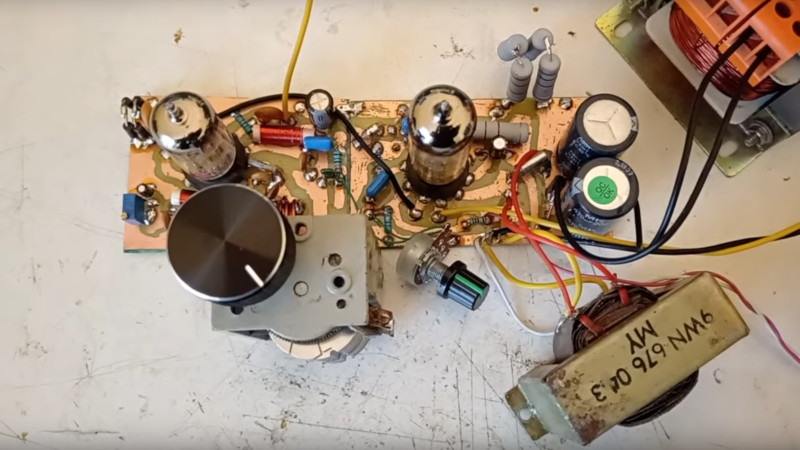The regenerative radio is long-ago superseded in commercial receivers, but it remains a common project for electronics or radio enthusiasts seeking to make a simple receiver. It’s most often seen for AM band receivers or perhaps shortwave ham band ones, but it’s a circuit which also works at much higher frequencies. [Perian Marcel] has done just this, with a regenerative receiver for the FM broadcast band.
The principle of a regenerative receiver is that it takes a tuned radio frequency receiver with a wide bandwidth and poor performance, and applies feedback to the point at which the circuit is almost but not quite oscillating. This has the effect of hugely increasing the “Q”, or quality factor of the receiver, giving it much more sensitivity and a narrow bandwidth. They’re tricky to tune but they can give reasonable performance, and they will happily slope-demodulate an FM transmission.
This one uses two tubes from consumer grade TV receivers, the “P” at the start of the part number being the giveaway for a 300mA series heater chain. The RF triode-pentode isn’t a radio part at all, instead it’s a mundane TV field oscillator part pushed into service at higher frequencies, while the other triode-pentode serves as an audio amplifier. The original circuit from which this one is adapted is available online, All in all it’s a neat project, and a reminder that exotic parts aren’t always necessary at higher frequencies. The video is below the break.
















Please be kind and respectful to help make the comments section excellent. (Comment Policy)